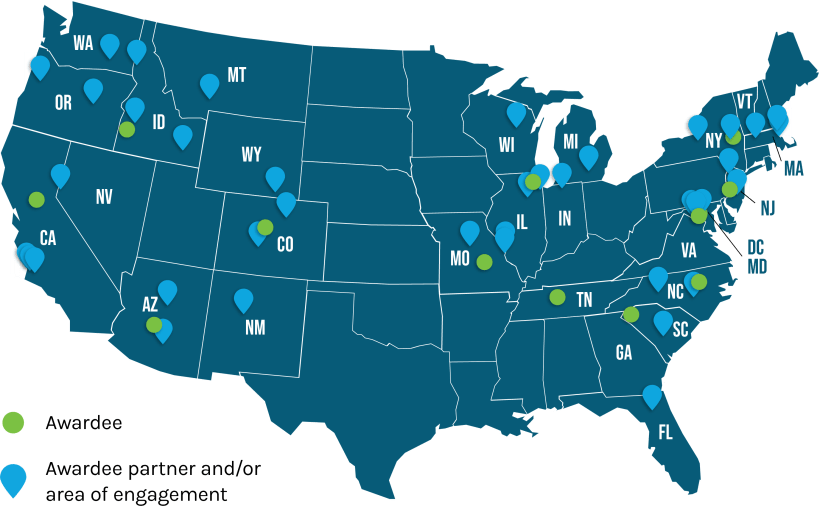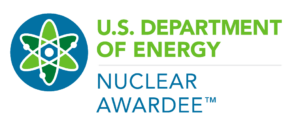About the Consortium

The Common Ground consortium aims to improve understanding and process design for collaborative-based siting tied to critical infrastructure. It is an approach to siting facilities that partners with people and communities. What is learned from public feedback sessions, research, and related work can inform process design for siting consolidated interim storage of spent nuclear fuel, the electric grid and power plants, hydrogen, as well as other types of critical infrastructure.
Led by Boise State’s Energy Policy Institute, Common Ground engages in conversations to develop recommendations. We draw from historical and current lessons on siting and related policy. The consortium focuses on improving the processes of public engagement and decision-making associated with siting in discussion with communities, Tribes, industry, policymakers, and technical experts.
Major participants
We are one of twelve consortia, designated by the U.S. Department of Energy (see map). Each consortium focuses on its uniquely proposed area of inquiry. Common Ground is a partnership of eight universities and the National Tribal Energy Association (NTEA), with additional cross-sectoral partners from government, industry and academia. This ‘networked learning’ hub includes Arizona State, Boise State, Colorado State, Idaho State, Montana State, University of Idaho, University of Wyoming, & University of Michigan plus NTEA. Additional partners include the National Association of State Energy Officials, Nuclear Energy Institute, Nuclear Waste Strategy Coalition, Western Interstate Energy Board, and Institute for Inclusive and Transformative Scholarship to ensure that State, industry, and key groups are factored.

Developing Recommendations
By design, this project focuses on providing recommendations to the U.S. Department of Energy on the design of processes and is not asked to designate a location or community for siting. In this 2 year project, we aim to have frank discussions to learn from the public and subject matter experts that want to contribute to improving relevant process design. Quoting of individuals will only be done with their permission.
Based on our geographic proximity, the aim for a diverse range of communities, and practicalities, discussions with communities have occurred around Idaho and Colorado. Points of preliminary feedback are broadly summarized here – Preliminary Feedback.
Seed Grant Program
Deadline: Currently closed
The seed grant programming supports research and public discussions on collaborative, public engagement and decision-making processes tied to siting of critical infrastructure.
Awardees
Awardees will advance understanding across sectors and types of critical infrastructure.
Utah State University will be awarded ~$80,000 to investigate how community health and wellbeing can be integrated into community engagement and collaborative siting for future energy infrastructure projects in communities experiencing change in Utah’s Carbon and Emery counties.
Alaska Conservation Foundation (ACF) will be awarded ~$135,000 to address consent in the mining sector. Partnering with the Alaska Mining Impacts Network (AKMIN), ACF will investigate the decision-making implications of consent vs. consultation and host a conference, bringing together AKMIN participants, mining impacts groups, and agency staff.
The above proposals were chosen for their clear potential and valuable approaches to make significant contributions in the area of consent-based siting.
Methods
The project adopts a strategy to improve approaches for engagement and decision-making for different kinds of communities across geography, experience, and sector. It utilizes the strengths of interviewing/case analysis/historical record review for briefings, with geospatial modeling of siting considerations. Mutual gains approaches, Delphi ranking and pairwise comparisons may be used in discussions.
Anticipated Outcomes of the Consortium

- Articles & briefings for communities, policymakers & industry
- A knowledge repository/training/tools for consent-based decision-making
- Improved understanding across geography and sector from different stakeholders
- Identification of better practices
- More informed training and writing
This webpage will be periodically updated. Last update: February 10, 2025.
